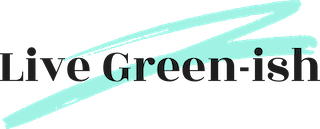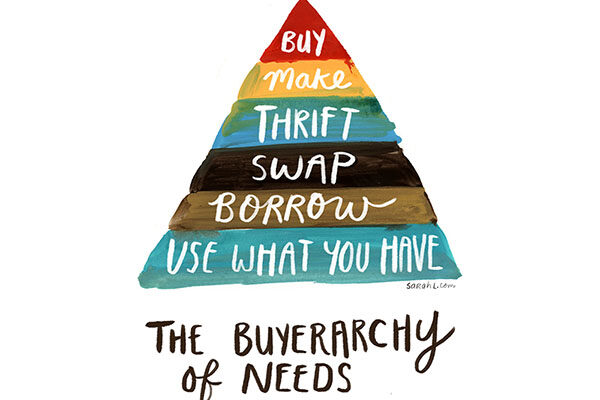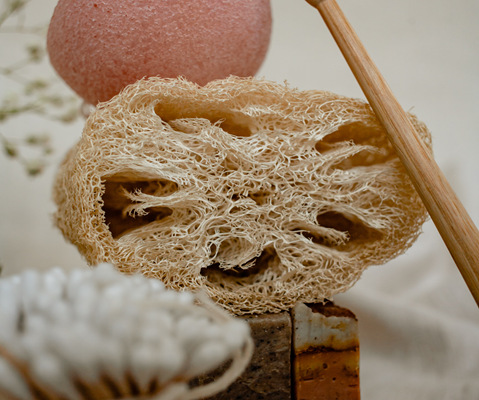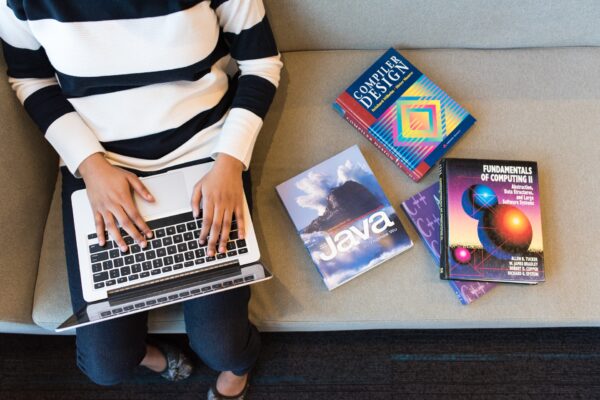
Minimalism has become quite a popular term in recent years, but it takes on a personal meaning, nonetheless. Joshua Fields Millburn and Ryan Nicodemus of The Minimalists describe minimalism as “a tool that can assist you in finding freedom,” while Courtney Carver of Be More with Less describes it as “simply removing the things that remove you from your life. It doesn’t mean removing all of those things overnight, and what you choose to remove will change over time.” Another thought leader, Joshua Becker, describes a minimalist lifestyle as being “… marked by clarity, purpose, and intentionality. At its core, being a minimalist is intentionally promoting the things we most value and removing everything that distracts us from it.”
For me, minimalism means prioritizing those things that are necessary and bring value to my life. Those things that are necessary and bring value, differ from person to person. Consequently, there is no one-size-fits-all approach to a minimalist lifestyle. It depends on your values, goals, and current life situation. Thus, for one person, minimalism can translate into living in a sparse tiny home, but for another, it can simply mean having a capsule wardrobe.
Here are some of the things I’ve learnt since adopting a minimalist lifestyle.
- Minimalism is not a goal, but a tool.
The true value of minimalism is not in having fewer things, but can be found in the opportunities that result from having fewer things. Living a simpler life has reduced clutter and waste, saved me a lot of money, and kept my home (and life) organized. A minimalist lifestyle has also reduced financial strain, worry, and allows me more time (and money) to spend on the more important things in my life.
- Minimalism isn’t just about physical stuff.
While clutter arising from physical stuff is easily recognised, intangible items can also weigh us down. Excessive time spent on social media, the overload of digital information coming at us on multiple devices, and even our many email newsletter subscriptions that we spend way too much time sorting through, prevents us from being present in our every day. Further, those tasks that keep us busy, but add little value, pull us away from more important things, like quality time with family and friends.
- Quality trumps quantity.
Purchases have become more meaningful since having fewer possessions requires that the ones you own stick around for a LOOONG time. My emphasis is now on quality when it comes to purchasing new items including clothing, beauty products, and even appliances. I try to avoid cheaper or inferior alternatives that are disposable or provide a shorter life cycle.
- Items may cost more but you SPEND LESS.
Because I now prioritize high quality, I sometimes spend a bit more on my purchases. However, I’ve realized that this has actually saved me A LOT OF MONEY over the years. My purchases tend to last much longer than lesser alternatives, so I don’t have to keep replacing them. For instance, since I’ve begun investing in high-quality bras, I no longer have to battle with the wire poking at my boobs, and having to change out my bras every couple of months as a result. I now have far fewer bras that last me several years.
- My multi-purpose purchases have increased.
Products that allow for a variety of uses have become increasingly desirable. They give more bang for your buck, save you a ton of space, and reduce waste. My ottoman is my ABSOLUTE fave multipurpose item! It stores my linens, provides a seat when I’m putting on my makeup, and is also an occasional bedside table. White vinegar is also one of my go-tos for cooking, cleaning, and even laundry.
- DIY has become a regular practice.
A minimalist lifestyle promotes self-reliance and individuality. This could explain why DIY has become a major practice for me at home. It saves me time, money, space, and reduces waste. One of the main things I DIY is cleaning products. I make an all-purpose cleaner with white vinegar as the base, and place it in a reusable spray bottle. I use it in my kitchen, living area, and even on my yoga mat. This natural cleaner is also more environmentally friendly than chemically-based ones.
- More planning goes into my day to day life.
A minimalist lifestyle forces you to be more intentional about what and how you consume. Consequently, you plan for nearly every aspect of your day – from meals and purchases to recreational activities. It basically organizes your life.
- As life evolves, your version of minimalism changes.
What minimalism looks like doesn’t only differ from person to person, but also changes over time. As human beings we are constantly evolving, and so does our needs and desires. For instance, a single adult’s minimalist life could easily be seen in a sparse 300 square foot studio apartment, with a bicycle as the primary mode of transportation. However, adding a spouse and child to this picture may require some adjustments – larger home, a car, more furniture and probably more toilet paper (hopefully).
Minimalism is a very personal journey and there are so many different ways to approach it. But no matter what it may look like for you, or me, we can all benefit from embracing a simpler lifestyle.
Now that we’ve simplified the meaning of minimalism, how will you determine your personal meaning of minimalism?
Where in your life is there an excess where there could be less? Share in the comments below!




Thriving to become a minimalist has definitely added peace in my life. I’m a work in progress, but confident that it will become my way of life unconsciously soon.
❤️
❤️
I agree that minimalism differs from individual to individual. What it looks like for me is keeping the people I surround myself with to a minimum.
♥️
Less is best is always a lifestyle I have adopted…. It also makes it easier to keep my establishment clean when doing house work.
♥️